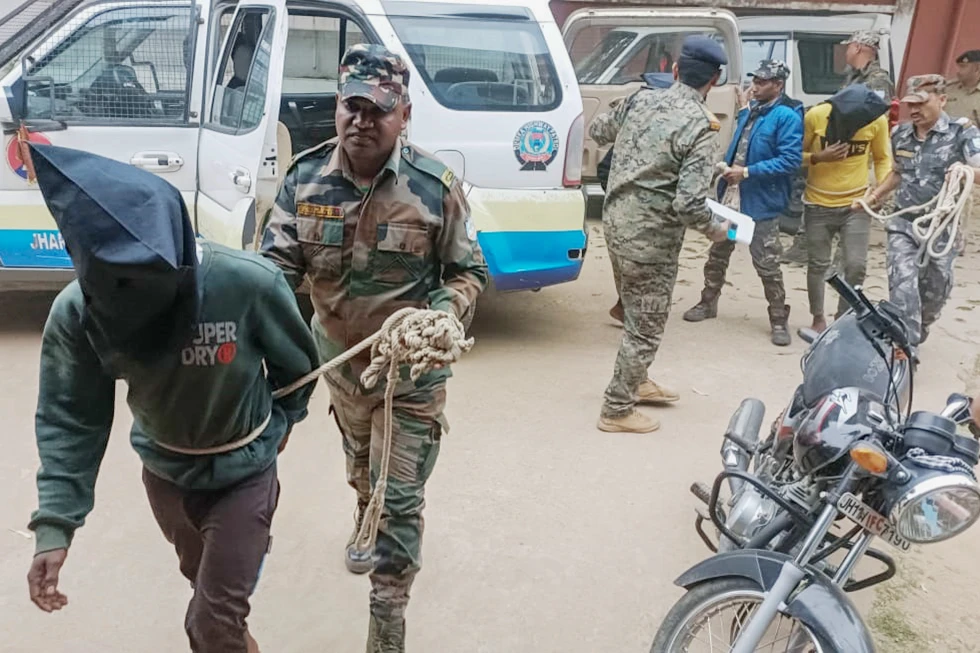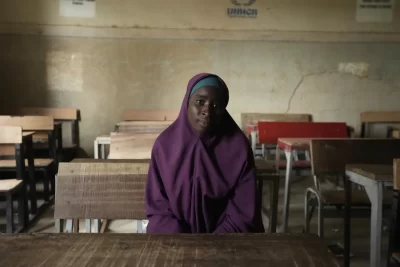
NEW DELHI— The woman in the Instagram video appeared shaken. Her face was swollen and bruised. Sitting beside her husband, she began recounting her ordeal.
“Something happened to us that we wouldn’t wish on anyone,” she said in Spanish, with captions in English. Her husband then said: “We were assaulted in the tent. We were beaten. They put a knife to our necks and she was raped by seven guys.”
In the video that has since been deleted, the woman said the assault on her and her Spanish partner — both travel bloggers — took place in a forest late Friday in eastern Jharkhand state’s Dumka district where they were camping on their way to neighboring Nepal.
The couple, who had been documenting their trip for more than 200,000 followers on an Instagram account, were found by a police patrol van which took them to a hospital, where the woman told the doctor she had been raped. Police in Jharkhand confirmed the incident and arrested three men over the weekend. On Monday, police said they were searching for four more suspects.
The Associated Press generally doesn’t identify victims of sexual assault. The case triggered a nationwide outcry over one of India’s rampant problems: a decades-long struggle to curb rising sexual violence against women.
Reports of horrific sexual assaults on women have become familiar in India, where police recorded 31,516 rape cases in 2022, a 20% increase from 2021, according to the National Crime Records Bureau.
The real figure is believed to be far higher due to the stigma surrounding sexual violence and victims’ lack of faith in police. Women’s rights activists say the problem is particularly acute in rural areas, where victims of sexual assault are sometimes shamed by the community and families worry about their social standing.
“Often, the victims are victimized further with insults, and it makes it very difficult for them to report the crime to the police. In such cases, women think it is best to keep quiet,” said Mariam Dhawale, a women’s rights activist and general secretary of the All India Democratic Women’s Association.
Rape and sexual violence have been under the spotlight since the brutal 2012 gang rape and killing of a 23-year-old student on a New Delhi bus. The attack galvanized massive protests and inspired lawmakers to order the creation of fast-track courts dedicated to rape cases and stiffen penalties.
The rape law was amended in 2013, criminalizing stalking and voyeurism and lowering the age at which a person can be tried as an adult from 18 to 16.
Despite stringent laws, rights activists say the government is still not doing enough to protect women and punish attackers.
“Often, investigations in rape cases are messed up by the police and timely evidence is not collected. These cases get dragged on without any convictions and the culprits walk free,” Dhawale said. She said convictions remain rare and cases often remain stuck for years in India’s clogged criminal justice system.
In the last few years, the conviction rate in rape cases has hovered below 30%, according to several government reports.
High-profile rape cases involving foreign visitors have drawn international attention to the issue. In 2022, a British tourist was raped in front of her partner in Goa. Earlier this year, an Indian-American woman said she was raped at a hotel in New Delhi.
In January, the Supreme Court restored life sentences for 11 Hindu men who raped a Muslim woman during deadly religious rioting two decades ago. They had been released in 2022, when they were garlanded with flowers by their families and a lawmaker from Prime Minister Narendra Modi’s governing Bharatiya Janata Party.
Last year, female wrestlers demonstrated against the head of the wrestling federation, accusing him of repeatedly groping women. After months of protests, Brij Bhushan Sharan Singh, an influential lawmaker from Modi’s party, was charged in court with stalking, harassment and intimidation. Singh has denied the accusations.
Dhwale said even though high-profile rape cases get media attention, a culture of downplaying sexual harassment and violence against women remains prevalent in India.
“We are continuously on the road to protest, sometimes to get a single case registered. It shouldn’t be like that,” she said.




